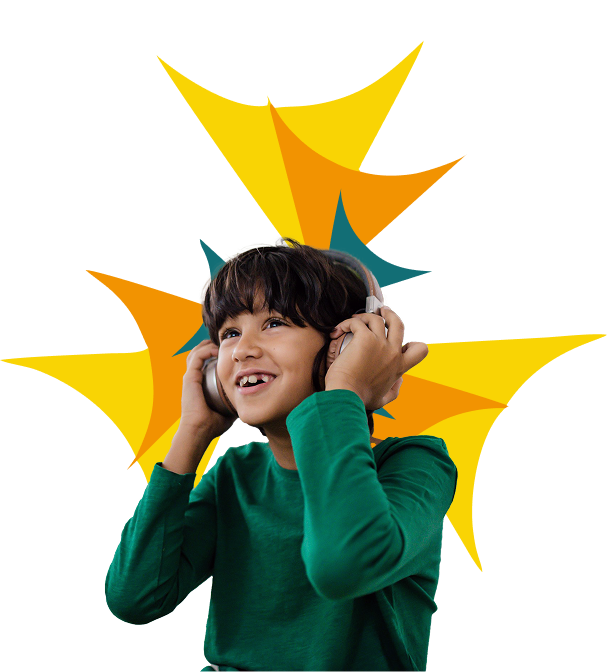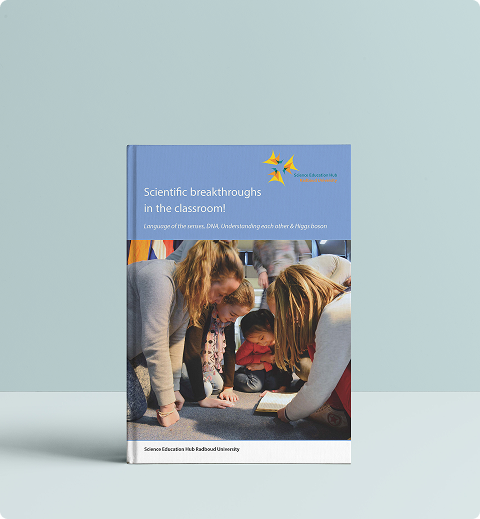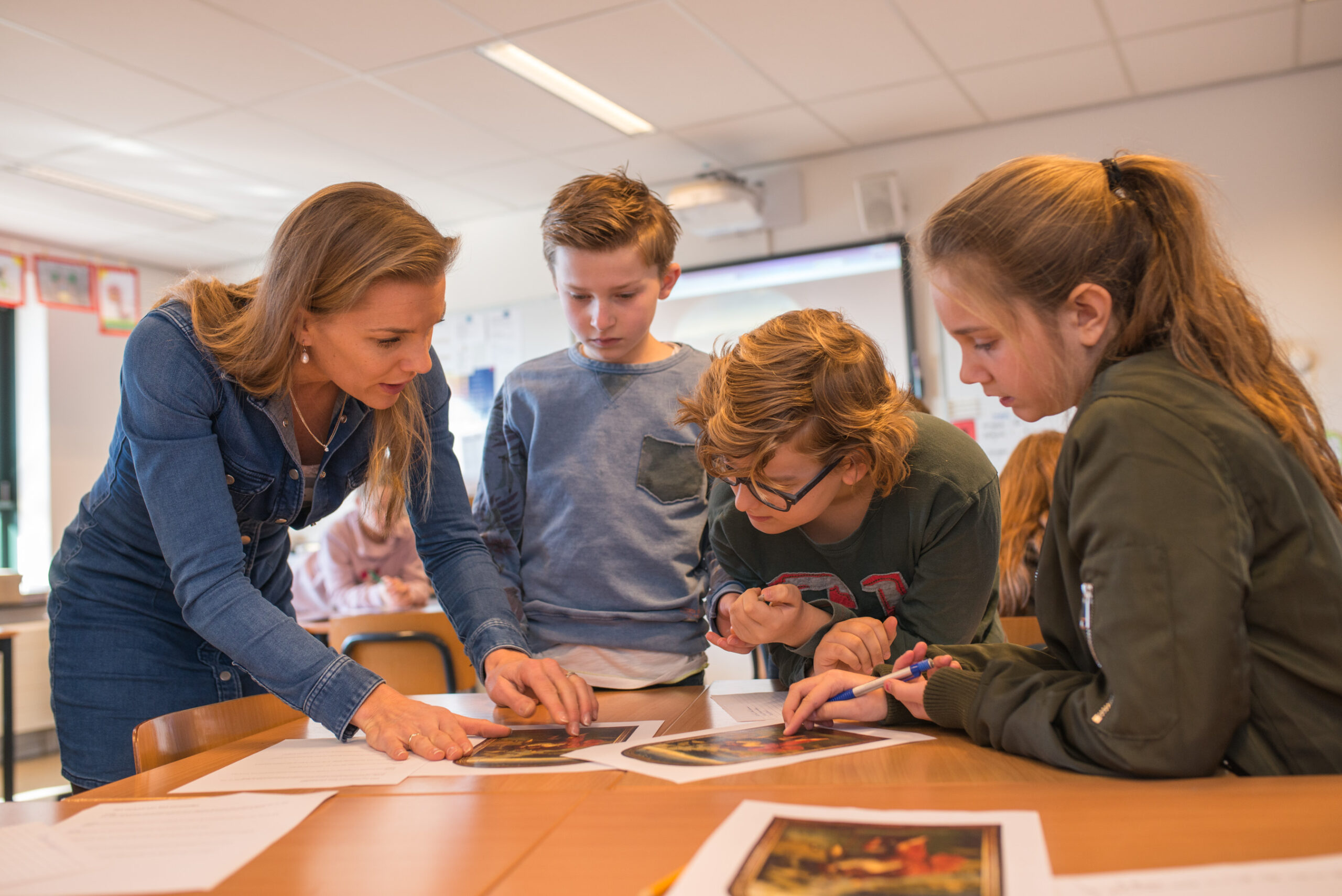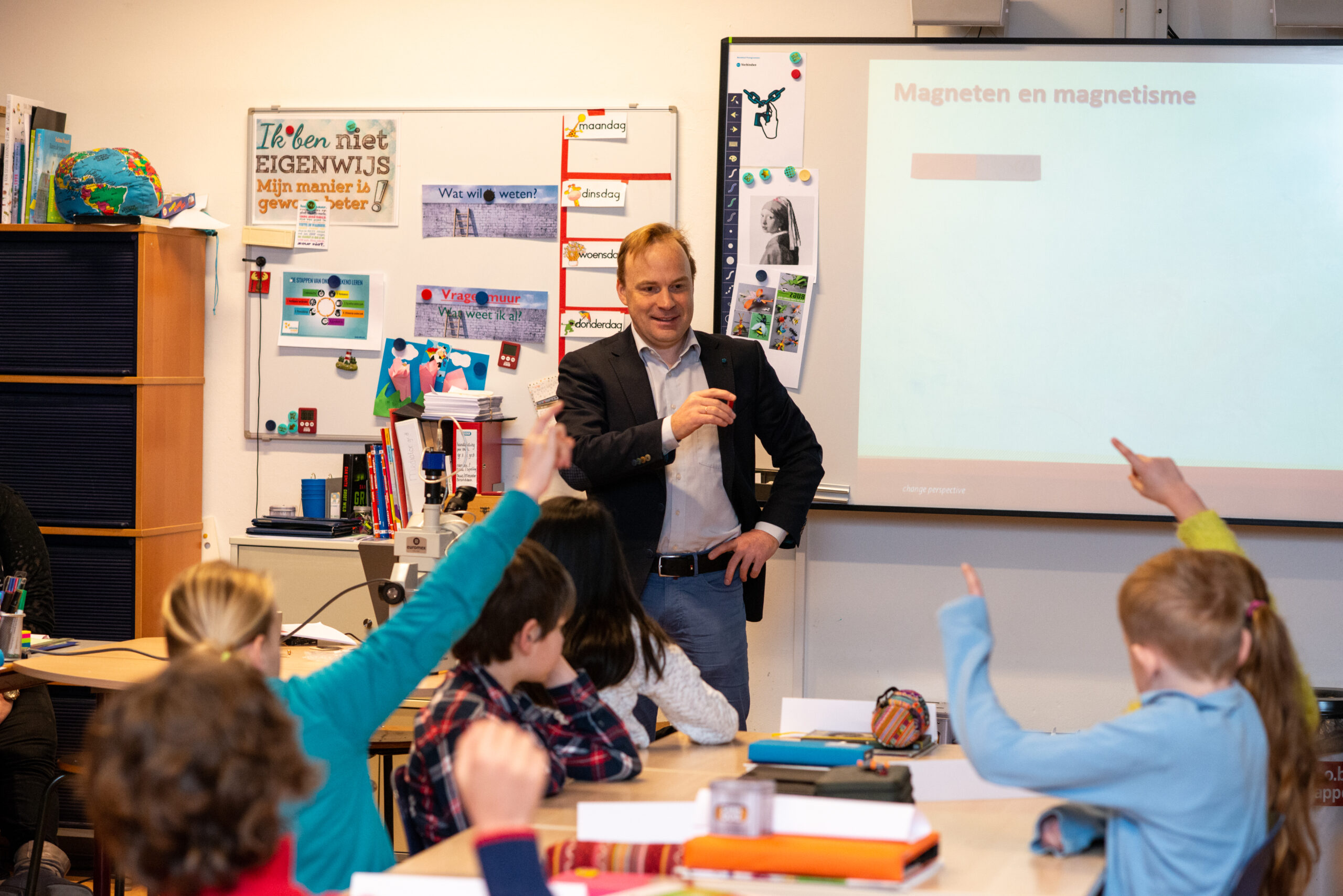Science Education Hub Radboud University
The Science Education Hub Radboud University (WKRU) was founded in 2009 as the first science education hub in the Netherlands. The WKRU (Wetenschapsknooppunt Radboud Universiteit in Dutch) is an expert in inquiry-based learning and science education. Our mission is to introduce children to science and to encourage an inquisitive and explorative attitude in both primary school students and (upcoming) teachers. In order to accomplish this, the WKRU organises various activities that establish a link between primary schools, pre-service teacher education and researchers of the Radboud University.


Materials
We developed education materials for inquiry-based learning with and for teachers. From 2011 until 2024, the WKRU annually published a new Dutch book in the book series ‘Scientific breakthroughs in the classroom!’. The books cover and translate many of the top research projects conducted at the Radboud University and the Radboudumc into activities for in the classroom. They involve research in the natural and social sciences, as well as the humanities. A number of chapters from the book series have been translated into English.

For researchers
The Science Education Hub supports researchers at Radboud University in all career stages to make their research accessible to primary school students and teachers. By translating research to this audience, children are provided with the opportunity to learn about science and research. As a researcher, you learn how to communicate your research to a broader audience and gain new and unexpected insights by looking at your project through children’s eyes.
We offer a variety of options to bring you in contact with primary education and valorise your research to this audience. Get in touch with us to discuss what the Science Education Hub can do for you.

Frequently asked questions
The teaching materials from the Science Hub have been developed with funding from Radboud University, Radboudumc, and various grant providers such as NWO. They believe it is important to stimulate curiosity and an investigative attitude in children from an early age. By offering the teaching materials for free, everyone can use them, and science becomes something for everyone.
Yes, check out all our children’s lectures (~10 min) from top scientists at Radboud University. You can choose from many topics, ranging from art history to the Higgs boson. We also have video portraits of scientists available. In these, award-winning researchers are interviewed by primary school students, allowing them to get to know them personally. These videos are perfect for breaking the stereotypical image of scientists and reducing the distance between scientists and students. Please notice that these video’s are in Dutch.
Do you want to challenge your students to develop their research skills? Take a look here for all our information and tools for teachers. In our guideline for inquiry-based learning, you will discover which steps students go through when setting up their own research. We also show how you can practically guide this as a teacher. We recommend always starting small and putting students’ curiosity at the center. Want to dive deeper into inquiry-based learning? Then be sure to explore our rich database of publications and resources! These will help you prepare both content-wise and practically.
Some themes are also published as books. You can order them for free here, as long as supplies last. All of our materials are available for free download for you to print yourself.
The teaching materials are suitable for all students in grades 6, 7, and 8 of primary education. They can also be used in enrichment classes. Some themes offer a bit more challenge. Sometimes we mention in the teaching materials that they are more suitable for grades 6/7 or 7/8. Take a good look at the materials first, and you will often be able to assess for yourself whether they match the level of your class.
All of our educational materials for primary school are available on this website. Each theme clearly explains how you can practically introduce the topic into the classroom. Sometimes these are projects consisting of several lessons. You can use these projects very well to let students do their own research. Examples of student-driven research can be found in the teaching materials. Please note that you can filter the materials by language.